How a London Artist Finds Calm Amid Modern Chaos
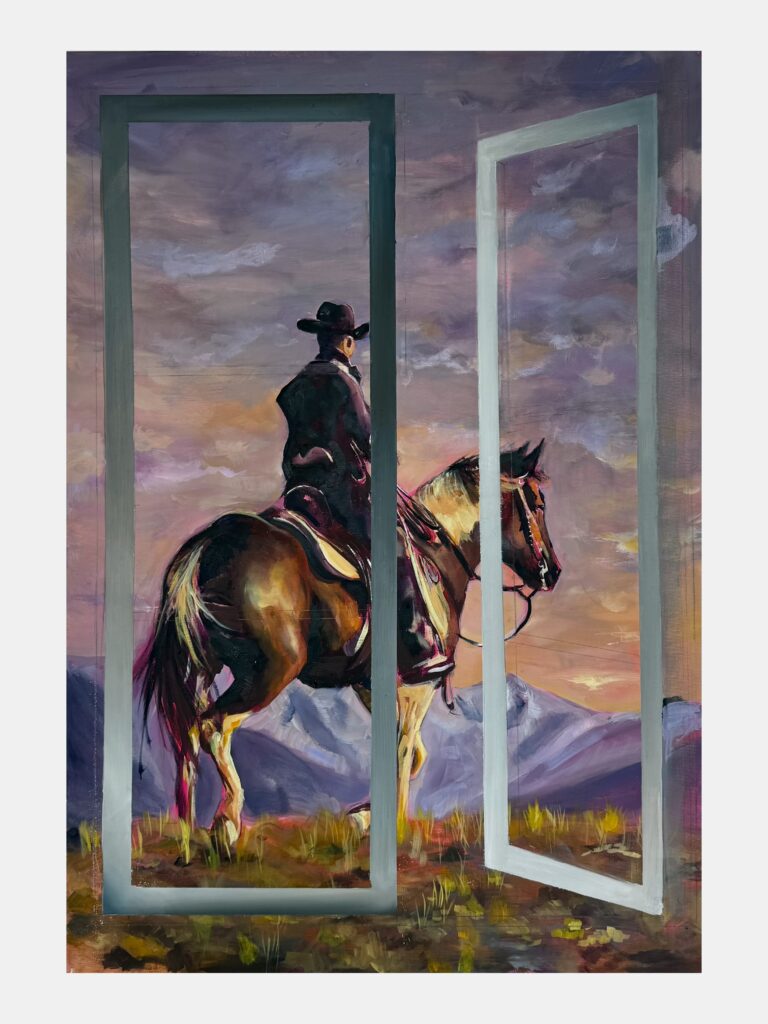
This conversation introduces Niah McGiff, a London based painter born in 1999 whose work lingers where screens meet landscape and myth. The interview explores how her practice treats technology not as decoration but as subject, questioning what happens to our sense of the spiritual and the natural when everyday life unfolds through digital filters. It offers a glimpse into the way she thinks and works, moving between clarity and uncertainty, and finding meaning in that shifting space.
Throughout the discussion, Niah talks about the slow rhythm of oil painting and how it contrasts with the fast, overstimulating world around us. She sees that tension as part of the work itself, using a traditional medium to speak about a culture built on speed and constant noise. Drawing on philosophical ideas such as Joseph Levine’s concept of the explanatory gap, she considers how art can bridge the distance between inner experience and what we are able to express. That sense of searching becomes visible in her process, where areas of precision meet looser, more fluid passages, echoing the way our minds drift between focus and confusion.
She also speaks about growing up in England with mixed heritage and how that shaped her understanding of belonging. Small acts of trying to fit in, and the stereotypes she encountered, linger in her memory and continue to surface in her paintings. These experiences have made her curious about identity and connection, and how people try to find place and meaning in environments that are constantly changing.
Her upcoming exhibition, Pixel and Flesh, brings together artists working in different mediums to create a space where unexpected connections can happen naturally. It is not about setting rules but about seeing how digital and physical experiences intertwine. Niah also reflects on showing her work online, noting how the texture and presence of painting can never be fully captured through a screen, yet acknowledging that digital platforms are now an essential part of how art reaches people.
The interview reveals an artist who is thoughtful about the world she inhabits and the one she creates. Through conversation, Niah shows how painting can still question, slow down, and make sense of life in an age that rarely pauses.
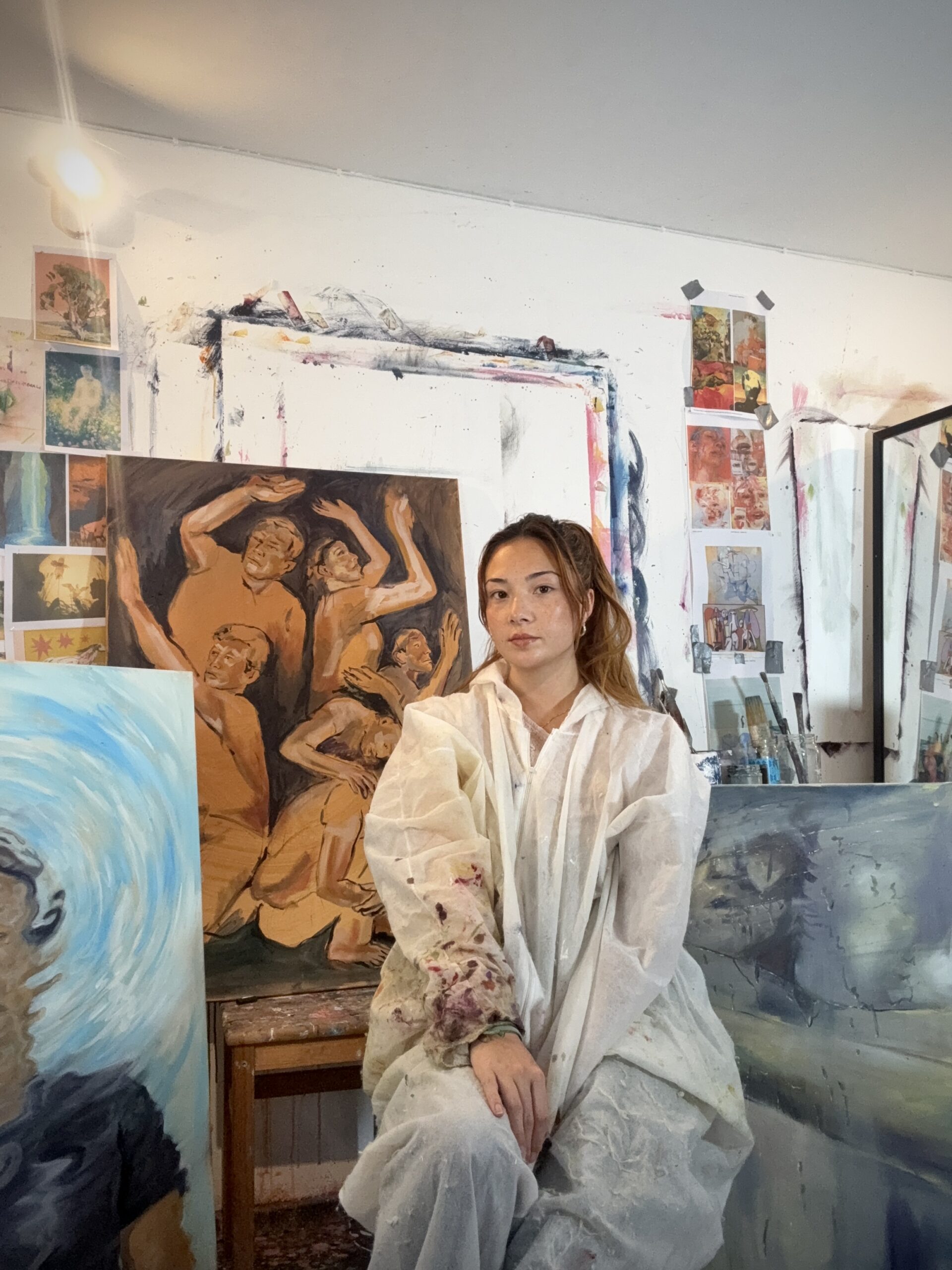
Born in 1999, Niah McGiff is a London-based artist whose paintings explore how digital culture reshapes our sense of the spiritual and the natural. Through a surreal approach to figuration, she creates images where bodies and environments appear unstable – dissolving, refracted, or half-remembered. Her work considers how we see ourselves, each other, and reality itself in a world where screens, memory, and myth constantly shift our perception. Niah grew up in England with a mixed heritage, navigating life within a predominantly white environment. Her work reflects on the complexities of belonging, not only in relation to personal identity but also within broader contexts of digital culture, politics, and emotional life. Through this lens, she explores the spaces we inhabit, the ways we seek connection, and the challenges of navigating a multifaceted identity. She is also deeply interested in psychological and scientific theories surrounding the mind, emotion, and the human drive to express. Central to this inquiry is the concept of the explanatory gap, a term coined by philosopher Joseph Levine to describe the limitations of physical theory in accounting for the richness of subjective experience. Niah’s practice seeks to bridge this divide, to reach across the space between inner experience and outer expression. Through experimental and intuitive processes, she investigates how diverse mediums and visual languages might articulate what is otherwise ineffable.
1. Your paintings often blur the line between the digital world and the natural one. How do you find a balance between those two realms when you’re creating a piece?
Often, oil painting is a slow and deliberate process. It’s an ancient practice that was once used to immortalise royalty, which I find really interesting, especially compared to how fast and overstimulating the world feels now. My work comments on that tension; I’m using this old, patient medium to talk about a culture built on speed, consumerism, and endless digital noise. I think the balance comes from that contrast. Painting lets me explore the strange, dreamlike side of technology and modern life, often through mythological scenes and figures that feel both timeless and very much of the present.
“Art and music are ways of closing that distance, of expressing what words can’t.
Niah McGiff
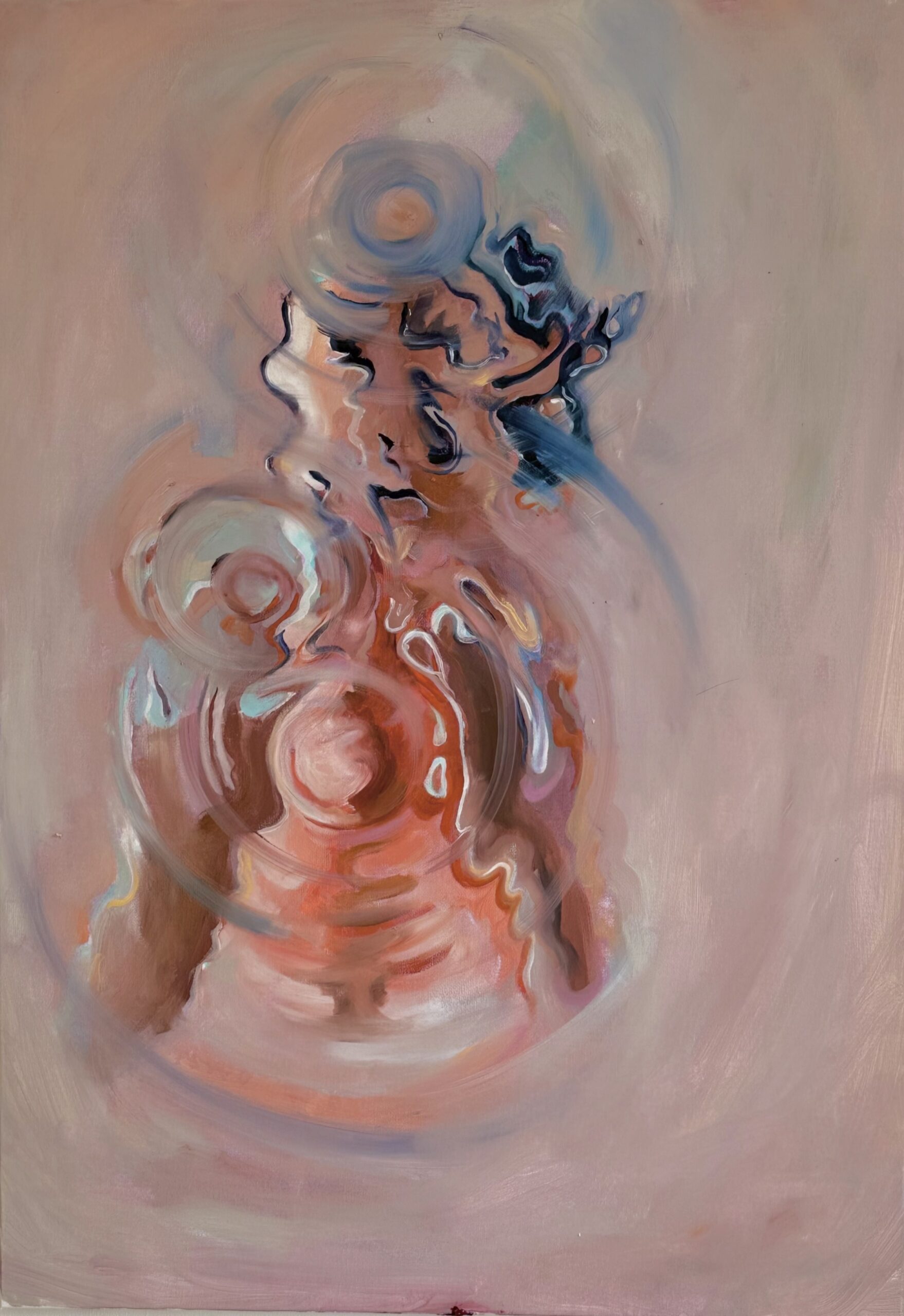
2. You draw on ideas like the “explanatory gap” in your work. What first drew you to those kinds of philosophical and scientific ideas, and how do they shape the way you make images?
What I’ve always loved about art is that it’s not just about making, it’s about thinking, too. I’m constantly reflecting before and after I create, and I think that energy naturally finds its way into the work. I’m always asking myself what it means to be alive, to be human. One thing I keep coming back to is how personal experience is. How we each live inside our own minds, feeling things that no one else can fully access. There’s something beautiful about that, but also really isolating. For me, art and music are ways of closing that distance, of expressing what words can’t. That’s always at the heart of what I do. The way artists think and feel is what ends up shaping every part of the painting.
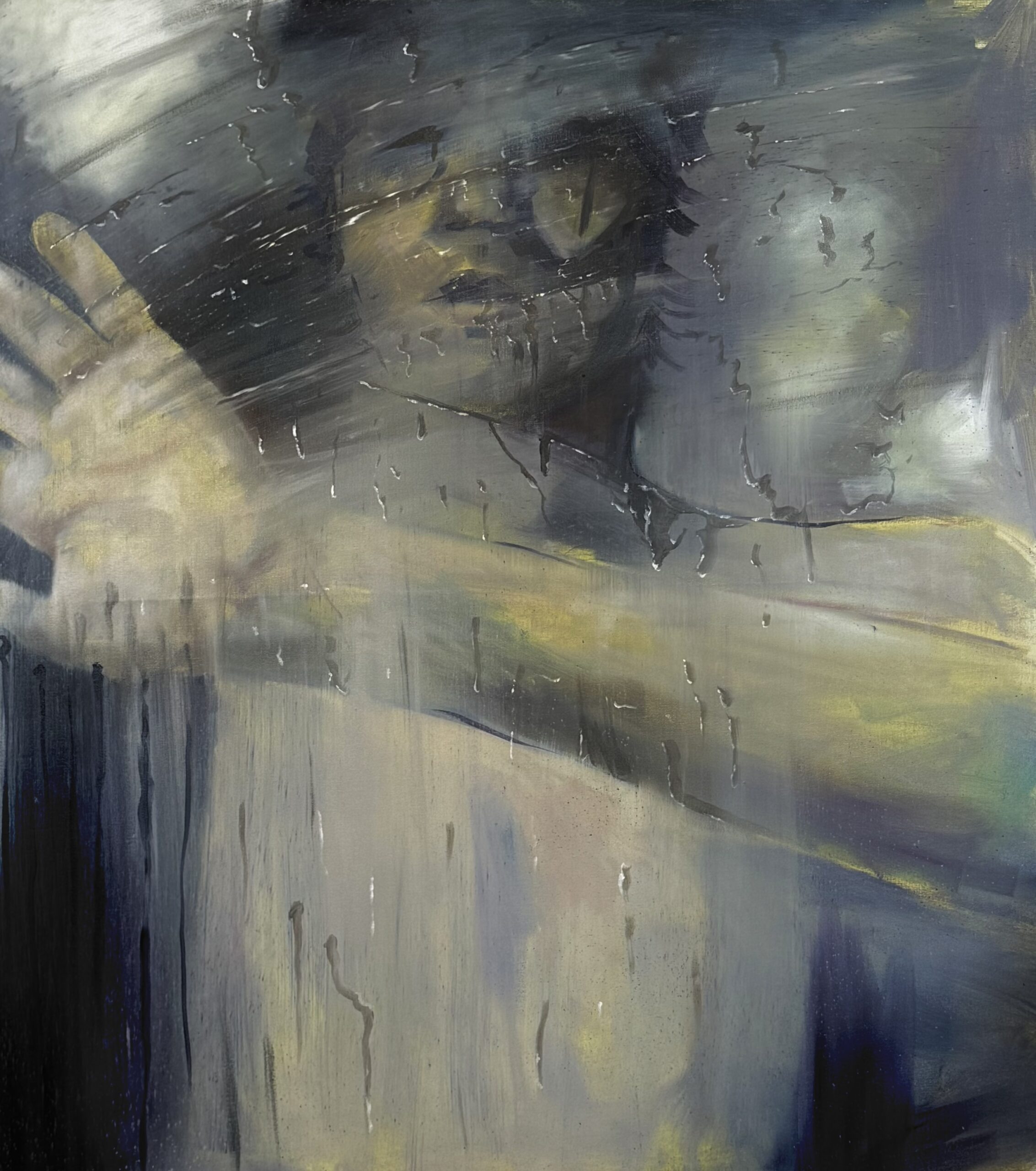
3. Growing up with mixed heritage in a mostly white environment must have come with its own set of questions about identity. How does that background feed into the way you think about belonging in your work?
Looking back, I can see how much I tried to change parts of myself to fit in. I’d dye my hair, get lash extensions . Little things that, at the time, didn’t feel that deep, but were probably subconscious attempts to look less Asian. It’s sad to think about now, but when you’re that age, especially in secondary school, you just want to belong. I remember how Chinese people were often the punchline of jokes, and definitely not seen as attractive, and that really seeps into how you see yourself. Navigating all that while surrounded mostly by white friends was confusing, and I think those feelings of fitting in still echo through my work. The themes of identity and belonging come up again and again because they’re things that feel so personal yet I think everyone can relate to in some way.
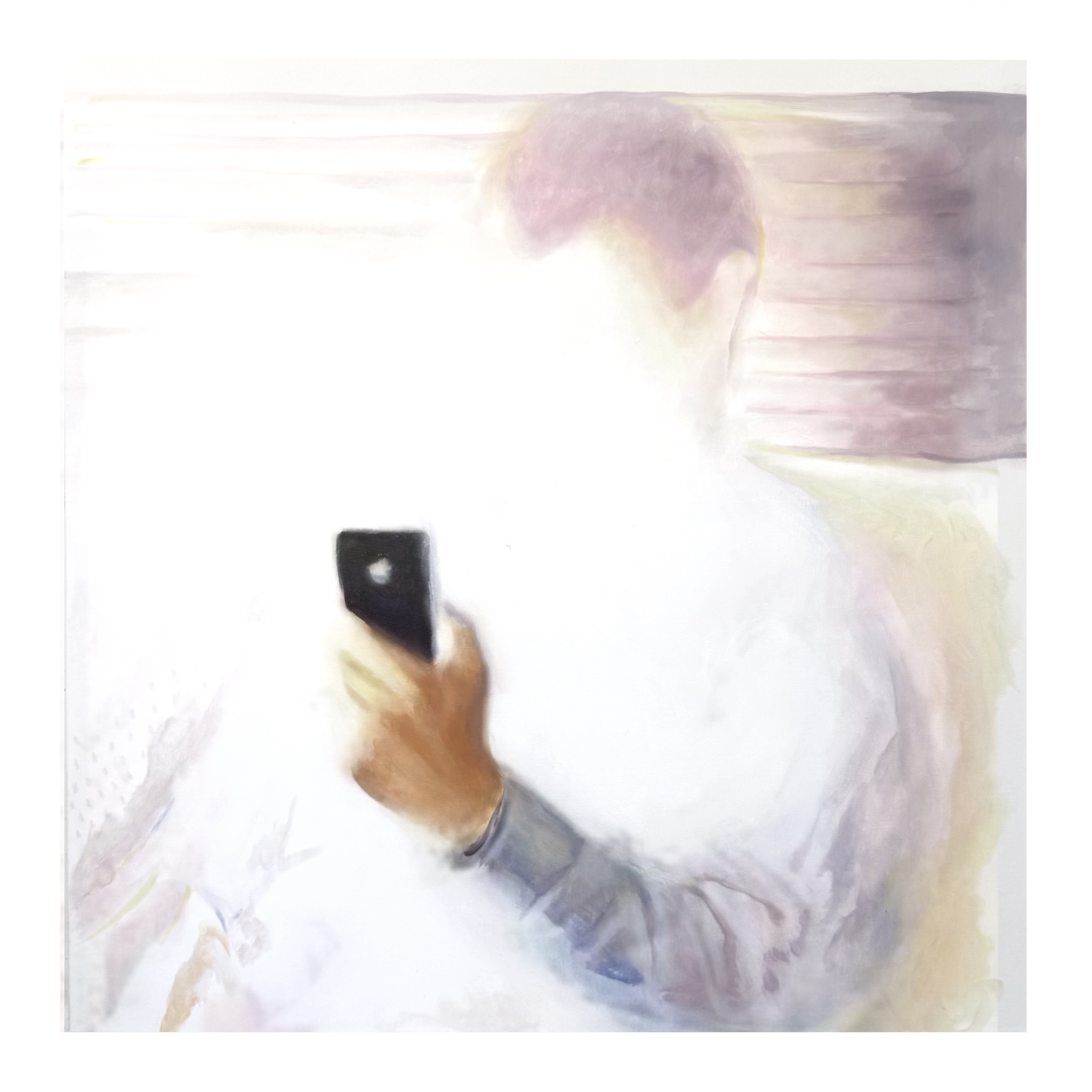
4. Your upcoming show, Pixel & Flesh, sounds intriguing. What kind of dialogue or atmosphere are you hoping to create through that exhibition?
Pixel & Flesh is a show I’m organising, bringing together artists working in different mediums, including oil painting. I wanted to create a space where the works can talk to each other and where unexpected connections can happen naturally. It’s not tied to a strict theme, but more about opening up space for reflection: how our digital age is changing the way we think and feel about the spiritual and the natural. I’m really interested in that in-between space, where technology and emotion, body and screen, start to overlap.
I’m using this old, patient medium to talk about a culture built on speed, consumerism, and endless digital noise.
Niah McGiff
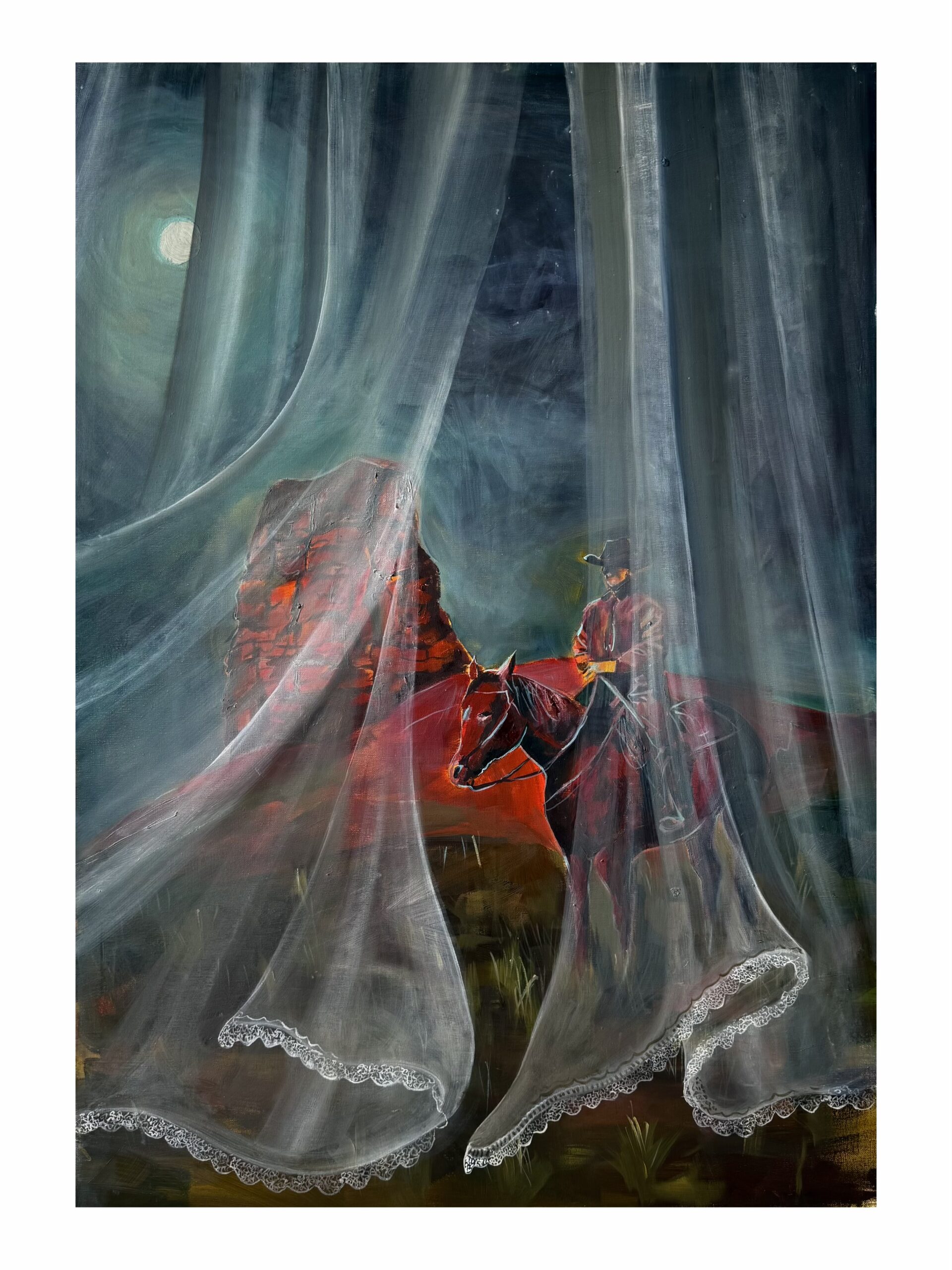
5. There’s a sense of movement and uncertainty in many of your paintings, where things seem to shift or dissolve. What interests you about working with that kind of instability?
I think it goes back to the idea of the explanatory gap again , that space between what we feel and what we can actually express. That movement and uncertainty just does something to me, it kind of itches a part of my brain. I love when a painting has that mix of energy – some areas that are loose and alive, and others that are tighter and more controlled. That contrast just feels right to me, like it mirrors the way our minds move between clarity and chaos.
6. You’ve exhibited both in galleries and in virtual spaces. How has showing work online changed the way you think about how people experience your paintings?
Ideally, I’d always want people to see my work in person, there’s so much about texture, scale, and energy that just doesn’t translate through a screen. But it ties back to the whole theme of our digital age; sometimes showing work online is the only way people will ever experience it, and that’s just the reality now. There’s something quite ironic about that, especially when my work is so much about the tension between the digital and the physical.
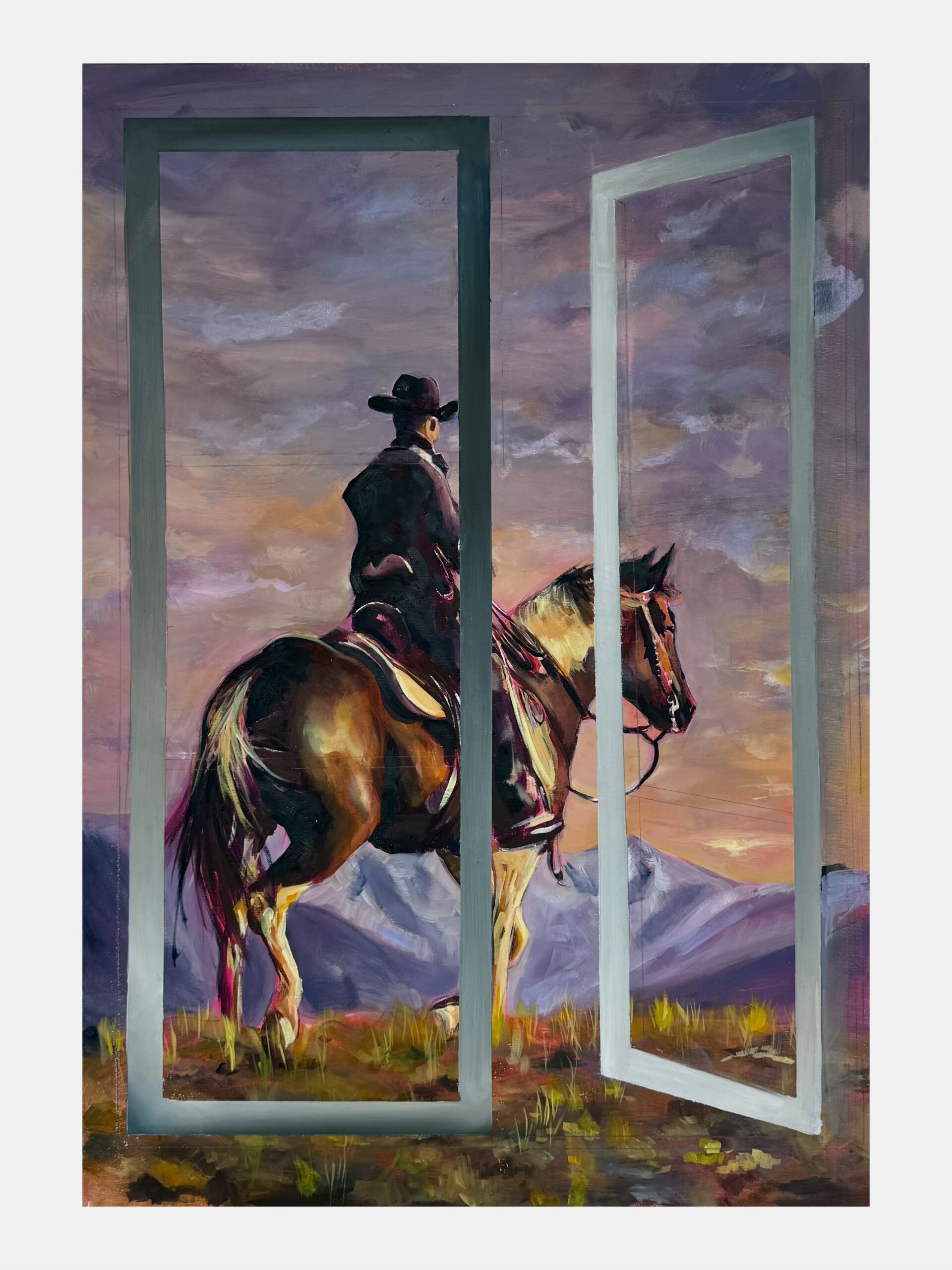
Niah McGiff’s paintings open a space between what is real and what feels imagined, where the digital world meets the natural one and identity is constantly shifting. Her work asks how modern life, filled with screens and noise, shapes the way we see and understand each other.
From her story we learn that painting can still create moments of stillness and thought in a time that moves too quickly. Her journey shows that art can explore uncertainty without needing to resolve it, and that questions about belonging, technology, and emotion can live side by side within an image. Through her calm and curious approach, she invites us to pause and look more closely at how we experience the world around us.
To learn more about Niah, visit the links below.
